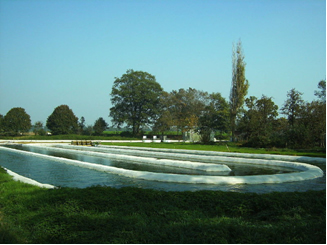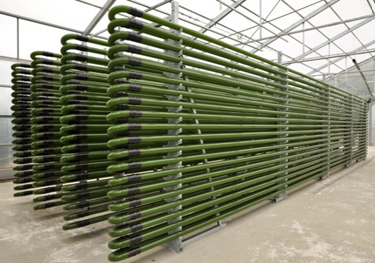Since oil is not renewable, it pollutes the environment a lot and its main sources are located in conflict zones, which generates tensions political and economic, as well as causing many changes in their prices, the need to seek alternative sources of fuels.
You biofuels - products used to generate energy from biomass - have been shown to be effective alternatives to petroleum derivatives. One of them is the biodiesel – usually obtained through vegetable oils (such as soybeans, castor beans, corn, peanuts, cotton, palm, among others) or animal fat - which consists of saturated hydrocarbons of long chain.
But a new source for the production of biodiesel that has been emerging are the seaweed. Algae can be divided into macro and microalgae. In the sense of the production of biofuels, the microalgae, which are unicellular, microscopic and photosynthetic aquatic organisms that use solar energy for photosynthesis, converting solar energy into stored chemical energy.
See some of the benefits of the use of this type of biodiesel:
- Algae are not widely used as food., as with corn, soybeans and other sources of vegetable oils that are used to produce biodiesel. Thus, the use of algae can be the solution to produce biodiesel on a large scale, as it can greatly minimize the impact on food production;
- They grow very fast, being able to complete a growth cycle in a few days and double its biomass several times a day;
- high yield: Microalgae have a high oil content, and in some cases this content can reach 80% oil by dry weight. They can produce at least 30 times more energy per hectare than terrestrial crops. Under optimal conditions, 137,000 liters of oil per hectare per year can be produced;
- Algae production does not need large extensions of space for cultivation.
In addition to biodiesel, algae can also be used to produce other alternative forms of energy, such as ethanol, hydrogen, methane, biomass for combustion and gasification, and other variant forms of hydrocarbons fuels.
Among the techniques currently used to produce microalgae on a large scale are the use of raceway ponds, which are large open tanks, and photobioreactors closed tubes. Afterwards, the cultivated algae go through processes of extracting their oils and processing them.

Pond used for large-scale microalgae cultivation[1]

Tubular photobioreactor for the culture of microalgae and other photosynthetic organisms [2]
But why, then, that this type of production has not yet leveraged?
there are still some challenges that need to be overcome, see the main ones:
- O cost algal biomass is more expensive than for terrestrial plants. It is necessary, for example, to control the acidity parameter of the culture medium, supply nutrients, sea water, carbon dioxide, light and maintain the temperature around 20-30ºC;
- Large-scale production in outdoor systems has been failing due to application difficulties;
- In culture tanks, invasive species can appear;
- The high levels of fatty acids and iodine present in the algae obtained make several purification steps necessary, which makes their production more expensive. When compared to the production of biodiesel from soybean oil, we see that the cost of producing oil from algae is about 20 times higher;
- Some microalgae cultures have high density, so it is more difficult for light to penetrate them;
- Extraction methods remain expensive and there are difficulties in dehydrating the algae for oil extraction.
This has prevented the emergence of industries that produce algae biodiesel on a large scale. It is important that solutions are developed to improve the production and extraction systems of oil from the algae and also the study methods for discovering which species of algae are best suited for this resource. energy.
* Editorial credit for the images:
[1]: Jan B46/ Wikipedia Commons
[2]: IGV Biotech / Wikipedia Commons
By Jennifer Fogaça
Graduated in Chemistry
Source: Brazil School - https://brasilescola.uol.com.br/quimica/biodiesel-algas.htm

